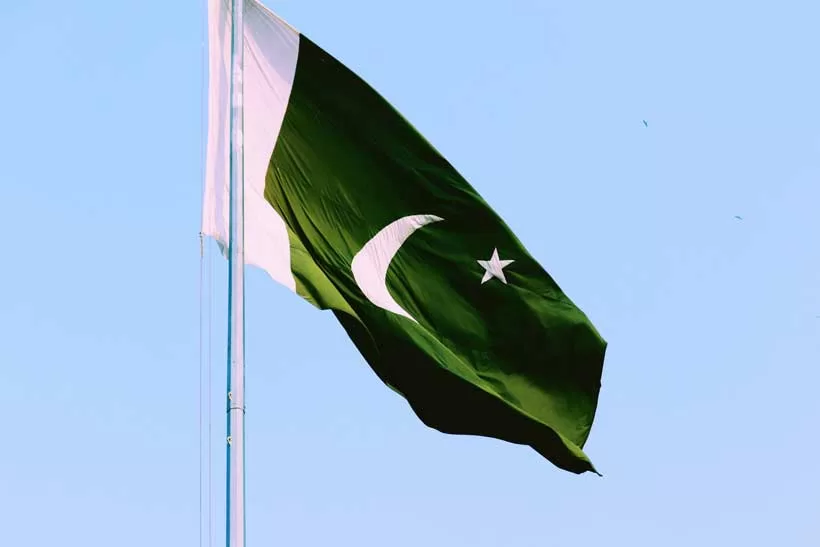This piece aims to validate the State Department’s statement issued on June 29, 2024, which asserts that “US-Pakistan relationship is stronger than ever.” Pakistan shares a complex history of positive partnership and tense distancing with the US. This relationship reached its highest point in the sixties during the Cold War through the formation of an alliance that was marked by strategic significance and geopolitical considerations. Periodic strains tempered the warmth of this alliance exemplified by the 1985 Pressler Amendment, triggered by concerns over the nuclear ambitions of Pakistan, highlighting the sporadic nature of bilateral trust. Another change emerged in the early part of the twenty-first century following September 11, 2001. The tumultuous past marked by cooperation and conflict is now witnessing a steadily improving trajectory with hopes for future cooperation and closeness. However, more recent events signal a possibility of the relations shifting back to improved collaboration and concordance.
In the first place, cooperation between the USA and Pakistan was closely linked with common interests towards the containment of Soviet presence with the added advantage of Pakistan as an advantageous geographic location. The cooperation was not without tensions, hindering nuclear worries, is evidence of that and how the bilateral trust was not always smooth sailing.
The next shift occurred after September 11, when Pakistan joined the United States in the war against terrorism. As a frontline state in the United States-led war on terrorism, Pakistan was provided with substantial military and economic assistance in exchange for supporting counter-terrorism efforts, especially on its long border with Afghanistan. However, this was compounded by charges of double-dealing on Pakistan triggered by its perceived support for some factions within the Taliban force, making the US-Pakistan relationship even more strained.
Despite the tensions, security cooperation between the two countries has remained a cornerstone of Washington-Islamabad relations. Joint military exercises and significant foreign military sales were prompted by mutual interests to combat terrorism and maintain regional stability. Despite the periodic turbulence, strategic alignment was illustrated by US support for the defence capabilities of Pakistan with substantial investments.
In the economic sector, trade and investment have been expanded with efforts to bolster Pakistan’s economic infrastructure and liberalization; being the largest source of foreign direct investment working closely in spheres of energy, trade and investment, health, climate change, regional stability, and counterterrorism. In the trade and investment sector, the relations continue to grow by organizing business-to-business trade relations, promoting business opportunities, and providing technical assistance to develop commercial partnerships.
The current diplomatic progressions reflect the diversity of partnership with mutual goals of economic prosperity and regional stability. Current examples include the US-Pakistan Knowledge Corridor, whereby education and exchange programs seek to enhance capability in both countries.
The United States sent over 99 million of COVID-19 vaccines to Pakistan and USAID has collaborated with Pakistani institutions to raise detection and treatment capabilities during the entire pandemic. In education, Pakistan has been a reliable ally in taking educational opportunities through the largest Fulbright Program globally by the US Education Foundation Pakistan with the support of both the Pakistani and the US governments.
In terms of counterterrorism and internal security, Pakistan has implemented certain measures against the militants and the UN-designated terrorist organizations as required by its National action plan on terrorism. However, the application of the sanctions of the United Nations on these entities remains to be quasi-juridical. The United States has persisted in encouraging and pressuring Pakistan to act against these groups; at the same time, the United States seeks collaborative opportunities with Pakistan, such as counterterrorism and border security.
Although the nature of bilateral relations has seen its fair share of highs and lows, it can be asserted that today, the relations between Islamabad and Washington are headed upwards significantly. The Biden Administration’s National Security Strategy (NSS) underscores the importance of solidifying alliances in the Indo-Pacific region to outmaneuver China and contain Russia. Strengthening ties with countries like Pakistan, which holds strategic significance remains crucial. Historically marked by a mix of cooperation and tension, U.S.-Pakistan relations have become strained, especially after the U.S. withdrawal from Afghanistan in 2021. This shift calls for a renewed approach that extends beyond security concerns. As the U.S. now focuses on great power competition rather than counterterrorism, Pakistan’s close ties with China have become a key consideration in Washington’s strategy. Despite perceptions, Pakistan maintains strong relationships with both China and the U.S. Ignoring Pakistan’s potential as an economic partner risks pushing it further into China’s orbit. By fostering collaboration in areas such as technology, health, climate, and education, the U.S. can promote stability and long-term engagement, ensuring Pakistan does not become overly reliant on China and thus protecting American interests in South Asia.
In conclusion, the United States and Pakistan have been bound in a mutually dependent international relationship based on shared strategic cooperation and political goals despite several obstacles. In the past decade, however, both parties have demonstrated an enhanced interest in the development of the bilateral relationship and operational aspects in the fields of security, economy, and social collaboration. The nature of the relationship has developed through the stages of cooperation and strategic partnership after the September 11 attacks and mutual antagonism.
It is important that US develops a multifaceted partnership with Pakistan where it supports Pakistan in economy, knowledge, IT and climate change related matters as well. A stable, prospering and progressing Pakistan is in interest of the region as well as the globe.
